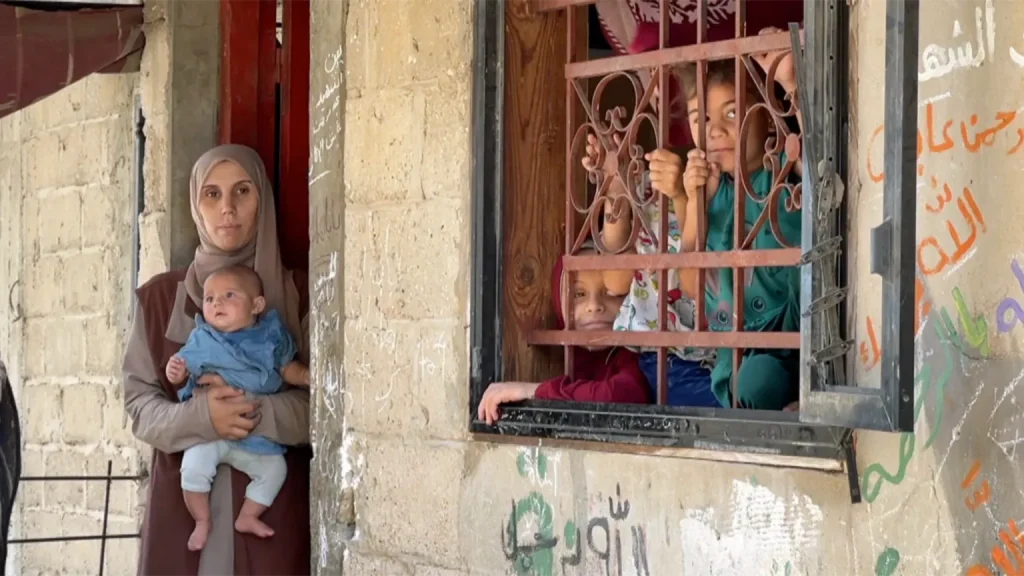Malak suddenly stops talking, leans forward, and kisses the baby on her lap. Her sister Rahma has light hair and blue eyes. Malak is 13 years older than Rahma. For Malak, who lost her father in an Israeli attack, the four-month-old baby is a very special gift.
“I love her so much, in a way no one else knows,” she says.
The BBC visited Malak and others in Gaza as the first anniversary of the war approached. They first talked to Malak in February, soon after her father, Abed-Alrahman al-Najjar, a 32-year-old farm worker, died.
He was one of over 70 people killed during an Israeli raid to rescue two hostages held by Hamas in Rafah. He was asleep with his family in a refugee tent when the attack happened.
Their tent was near the fighting. Malak lost an eye and was also hurt in her side. When she first met a BBC reporter, she cried out, “I am in pain. I lost my dad. Enough!”
Since then, doctors have put a small white sphere in her empty eye socket. It will stay until the war ends, and she can hopefully get a proper eye.
But Malak doesn’t complain. Instead, she thinks about how her father would feel if he could hold baby Rahma, who was born three months after he died. She smiles and says, “He always wanted a daughter with blue eyes.”
After everything that happened, Malak wants to become an eye doctor to help others who suffer like she does.

She is sitting on a concrete floor in Khan Younis, southern Gaza, with the baby and her five younger siblings—three sisters and two brothers, aged four to 12 years old. Before the war, their father worked hard on farms to support the family.
“Our father took us out and bought us clothes in winter. He was so kind. He would go without, but never let us go without,” Malak remembers.
Then on October 7, 2023, Hamas attacked Israel, killing over 1,200 people, including many children. More than 250 people were taken hostage, including a nine-month-old baby.
This led to Israel’s ground invasion, air strikes, and fighting with Hamas. Almost 42,000 people have died, according to the Hamas-run health ministry. About 90% of Gaza’s population, nearly two million people, have been forced to leave their homes, according to the United Nations. Malak’s family has been moved four times.
“I carry a pain that even mountains cannot bear,” she says. “We have been displaced, and it feels like our whole life is moving from place to place.”
The Israeli government does not allow foreign reporters into Gaza, so the BBC uses local journalists to cover the crisis. These journalists share the fear and pain of the people they report on. Displacement brings uncertainty and constant fear. Parents worry: Will their child, sent to get water, come home? Or will they find their home destroyed and their family lost? These are the thoughts that haunt Nawara, Abed-Alrahman’s young widow, every day.
“There is always shelling, and we are always scared. I hold my children close and hug them,” she says.